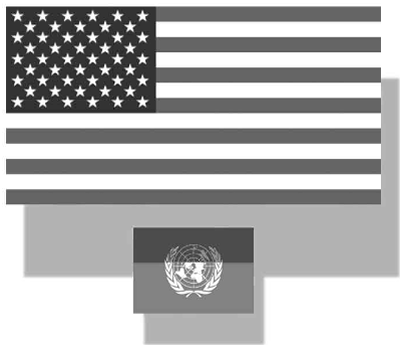061
"US Meddling in Global AIDS Crisis: A Triumph of Ideology Over Science." In spite of overwhelming evidence of the success of harm reduction strategies at reducing transmission of HIV/AIDS and other blood-borne diseases, the US government is shutting off support to international programs which support needle exchanges and other proven harm reduction techniques.
This advertisement appears in the National Review, the New Republic, the American Prospect, The Nation, Reason Magazine, and The Progressive in the winter/spring of 2005.
This PSA is also available in Portable Document Format (PDF).
This advertisement appears in the National Review, the New Republic, the American Prospect, The Nation, Reason Magazine, and The Progressive in the winter/spring of 2005.
This PSA is also available in Portable Document Format (PDF).
|
US Meddling In Global AIDS Crisis:
"A Triumph of Ideology Over Science." |
|---|

|
|
Intravenous drug use accounts for the majority of HIV cases in China, Iran,
Afghanistan, Nepal, the Baltic states, and all of Central Asia, as well as much of
Southeast Asia and South America. In Russia, where there are now more cases of
HIV than in North America, as many as 80% of infections are attributed to
injection drug use.1
"A large body of scientific evidence suggests that the free provision of clean needles curbs the spread of AIDS among drug users without increasing rates of addiction," said the US Surgeon General.2 Needle exchanges have been endorsed by the AMA, the American Public Health Association, the National Academy of Sciences and the World Health Organization. Despite these ringing recommendations, the State Department just sent a blunt message to the UN office responsible for drug education saying essentially: Shut up about needle exchanges or lose funding. Since the US is one of the major donors to the UN Office on Drugs and Crime, the UN quickly folded. All references to harm reduction approaches are being deleted.3 The New York Times summed it up: "Washington's antipathy toward needle exchanges is a triumph of ideology over science, logic and compassion. The United States should help pay for these important programs. If it cannot bring itself to do so, it should at least allow the rest of the world to get on with saving millions of lives."4 |
|
Common Sense for Drug Policy
www.CommonSenseDrugPolicy.org www.DrugWarFacts.org H. Michael Gray, Chair; Robert E. Field, Co-Chair |
Download PDF
